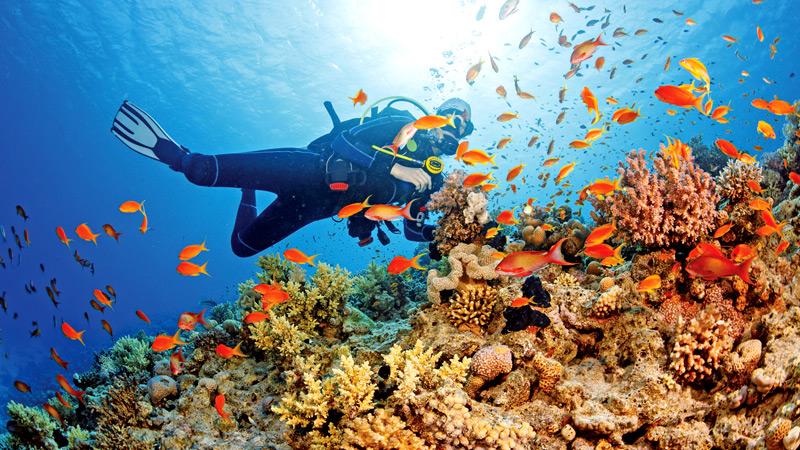
Future rates of warming threaten marine life in more than 70 percent of the most biodiverse parts of Earth’s oceans, new research reveals.
The researchers used a new technique to compare past and future extremes of ocean warming, which allowed them to map worldwide exposure to future climate change and determine distances that species would need to move to find better climate conditions.
‘Our research shows that locations with exceptionally high marine biodiversity are the most exposed to future oceanic warming, making them particularly vulnerable to 21st century climatic change,’ said lead author Dr. Stuart Brown from the University of Adelaide’s Environment Institute in a statement.
‘This is because species living in these biodiverse regions are generally ill-equipped to respond to large changes in temperature.’
Some of the most vulnerable areas contain a majority of the world’s reef-building corals, while other vulnerable regions are home to marine megafauna including manatees.
‘In many cases this will require moving distances beyond the oceanic regions that these species evolved in and are adapted to, at rates of movement rarely seen for marine life,’ explained Brown.
Spatial pattern
‘While we have known for some years that recent human-induced climate change is affecting marine life through shifts in species distributions and abundances, the spatial pattern of exposure to past and future fast rates of ocean warming has been unclear,’ said the University of Adelaide’s Associate Prof Damien Fordham, also from the Environment Institute.
‘The persistence of these richest areas of marine biodiversity will require many species to move well beyond the biogeographic realm where they are endemic, at rates of redistribution not previously seen,’ researchers stated in the study’s abstract.
‘By showing that areas of high marine biodiversity are disproportionately exposed to future warming, our results provide important new information for deriving and strengthening conservation actions to safeguard marine biodiversity under climate change,’ Fordham explained.
‘Actions that strengthen ecological and evolutionary resilience to climate change should be a priority. These could include improving fisheries management, assisting the movement of species, and the expansion of well-managed, climate-smart marine protected areas.’
The scientists’ research was published this month in the journal Global Change Biology.
Protection
A separate study, published in the journal One Earth, found that more than a quarter of the Earth’s oceans need protection in order for marine species to live without impact from humans.
Researchers in that study said that millions of square miles of ocean should be prohibited from any human activity - such as fishing, commercial shipping and restricting pesticide runoff in waters.
‘This science shows that governments must act boldly, as they did for the Paris Agreement on climate change, if we are to stop the extinction crisis facing many marine species,’ James Watson, director of science at the Wildlife Conservation Society, said.
Mail Online
